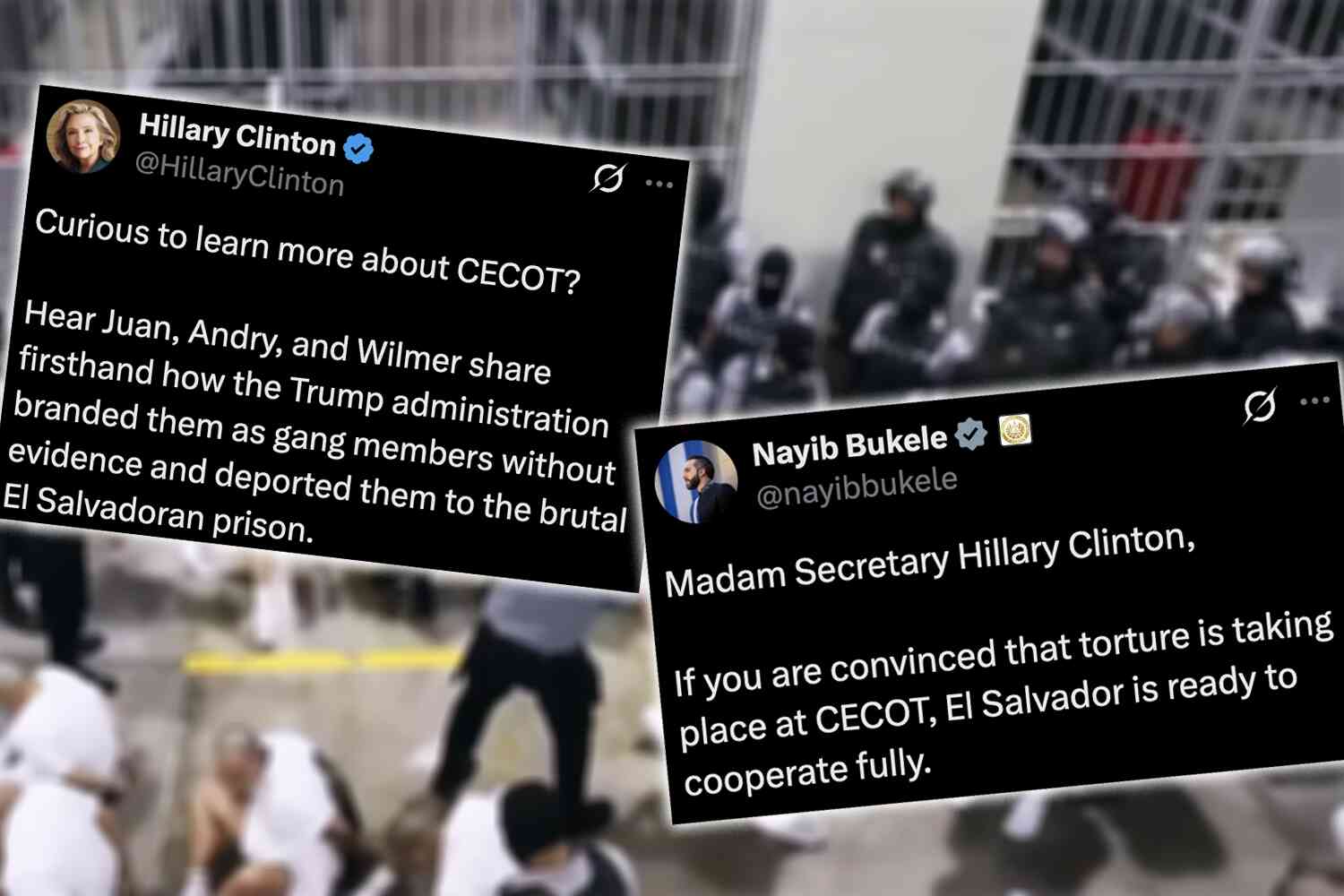Influential members of Congress and top human rights advocates in Washington are urging the Biden administration to take immediate action to ensure the safety of a group of Chinese Christian dissidents and two Americans detained by Thai authorities Thursday.
The group of refugees, including 35 children and 28 adults, fled China in 2019 to escape persecution. They initially sought refuge in South Korea and then Thailand while seeking emergency asylum in the United States. But the U.S. State Department and Department of Homeland Security have declined to grant the church members emergency asylum, as it has done for many others, including tens of thousands of Ukrainians fleeing their war-ravaged countries, and the first group of Afghans airlifted into the United States amid the chaotic U.S. evacuation in August 2021.
For months, human rights and religious freedom advocates have warned the State Department that Thai authorities have a history of working with the Chinese government to draw Chinese nationals out of hiding, arrest them, and send them back to their homeland, where they face imprisonment, torture, or worse.
Now the very scenario they warned about has taken place: On Thursday, Thai police raided the residence where the 63 refugees were staying and two Americans were visiting, arrested the group, fingerprinted them, and detained them in a holding facility.
The Chinese nationals face a deportation hearing Friday and could be sent back to China in a matter of days. Two American women from Tyler, Texas, Deana Brown and Stacy Nichols, are also being held, although it's unclear whether they face charges. Brown is the founder and CEO of Freedom Seekers International, a nonprofit that helps Christians persecuted overseas to resettle in the United States.
Rep. Mike McCaul, a Texas Republican who chairs the House Foreign Affairs Committee, urged swift action by the Biden administration to help protect the group of Christian dissidents. The group of 63 are members of the Shenzhen Holy Reform Church, a Protestant Christian denomination founded in 2012 on the Chinese mainland bordering Hong Kong.
For several years, the Shenzhen Holy Reform Church existed relatively peacefully but faced increasing surveillance and intimidation tactics under President Xi Jinping's crackdown on all religious organizations that don't agree to state church registrations and the government's heavy-handed rules. The church's pastor, Pan Yongguang, was ordained by the Philadelphia Bible Reformed Church of the Presbyterian Church in America, the second-largest Presbyterian denomination in the U.S.
Most of the church members decided to flee China after state police quashed widespread protests in nearby Hong Kong amid Beijing's tighter city control. The exiled Chinese Christian group is referred to by some advocates as the "Mayflower Church," inspired by the Pilgrims who left their homeland for the New World four centuries ago.
"Religious freedom, and its protection abroad, are core tenets of America's constitutional tradition," McCaul told RealClearPolitics in a statement. "I strongly urge the administration to ensure the safety of those connected to the Mayflower Church who are threatened by the [Chinese Communist Party]."
A spokesman for Texas Sen. Ted Cruz said the senator has been closely tracking the crisis throughout the day. "It would be catastrophic and indefensible for Thai authorities to deliver these dissidents to the Chinese Communist Party," the spokesman said. "They should be released immediately."
The bipartisan U.S. Commission on Religious Freedom on Thursday expressed grave concern over the developing crisis and pressed the State Department to move quickly to help safeguard the group.
"USCIRF is deeply concerned by the detention of the 63 Shenzhen Holy Reformed Church, or Mayflower Church, members in Thailand," said USCIRF Chairman Nury Turkel, whom then-Speaker Nancy Pelosi appointed. "They are at imminent risk of deportation to China where they will suffer severe consequences, including imprisonment and torture."
USCIRF Vice Chairman Abraham Cooper, whom Senate Minority Leader Mitch McConnell appointed, said the Chinese government has a long history of engaging in "transnational repression activities" by abducting Chinese dissidents from Thailand.
"We urge the U.S. government to use all feasible tools at its disposal to ensure Mayflower Church members' safety," he said.
Advocates described various ways the U.S. could come to the group's aid. Thai authorities could agree to allow the group to seek immediate asylum at the U.S. embassy in Bangkok. The State Department and DHS could then grant the group humanitarian parole, giving them temporary legal status to resettle in the United States. U.S. officials could also negotiate temporary asylum for the group in a third country to allow for the more lengthy and extensive U.S. processing time.
Former Virginia Rep. Frank Wolf, a USCIRF commissioner and longtime champion of religious freedom during his three decades in Congress, called on Secretary of State Antony Blinken to intervene directly and call his counterpart in the Thai government.
"If Secretary Blinken made the call, this would all be resolved," Wolf told RCP in an interview. "A five-minute telephone call to the Thai government and then him sending a message to the American embassy in Thailand to give these decent people a visa and let them get on a plane to Texas."
"This is not unusual," Wolf added. "Secretaries of state do this all the time."
Wolf also pointed to the timing of the crisis coinciding with reports this week that a growing number of Chinese immigrants are crossing illegally into the United States this year. The U.S. Customs and Border Protection reported that, in the past five months, at least 4,300 Chinese undocumented migrants had been apprehended crossing the southern border, more than double the number for all of the previous year.
Bob Fu, a Chinese American pastor who founded ChinaAid, an organization providing legal services to Chinese Christians, has spent years helping the Mayflower Church members gain sponsors to underwrite all their expenses during their immigration legal limbo in South Korea and Thailand. The same sponsors have agreed to bankroll their resettlement if and when they are allowed into the United States
Back in January, Fu told RCP that the group could have tried to enter the U.S. illegally through the border but wanted to respect U.S. immigration law and abide by the legal process.
If Thai authorities order their deportation back to China, it's tantamount to a death sentence, said Fu.
"That's the worst-case scenario. We can safely conclude they will all end up in prison and tortured because they are already being called traitors in violation of Chinese national security law."
The CCP is already waging a transnational intimidation campaign by contacting family members of the group who remain in China to accuse them of treason and subversion of state power, Fu said. And, he warned, several developments leading up to the Thai police raid on the group's residence suggest the CCP is involved.
Over the last week and a half, the church members confronted one man in their group who admitted that he had been speaking with Chinese authorities. The alleged spy then sought other housing and was seen being forcibly removed by Thai authorities, Fu said.
"He confessed [to other church members] that he had been in communication with Chinese state security," Fu said of the alleged spy living among the group. "We don't know where he's being held now or whether he's already back in China."
Fu said he has been in direct contact with U.S. embassy officials in Bangkok, who are working hard to find a solution to avert the group's forced deportation to China. He also praised the efforts of Rashad Hussain, Biden's ambassador at large for International Religious Freedom, over the last several months to try to help the church members gain entry into the United States.
Yet, he described a "sort of stonewalling" in some U.S. agencies and bureaus who have claimed over the last several months that the group of Christian dissidents was "not facing an imminent threat."
"They said they're not in danger," he said. "I think that mentality really hurt and jeopardized the lives and safety of these 63 members."
In January, a State Department spokesperson told RCP that the agency does not comment on individual refugee cases and directed questions about humanitarian parole and asylum decisions to DHS. The agency did not immediately respond to a Thursday inquiry about the Thai detention of the church members and two Americans.
Authored by Susan Crabtree via RealClear Wire.









